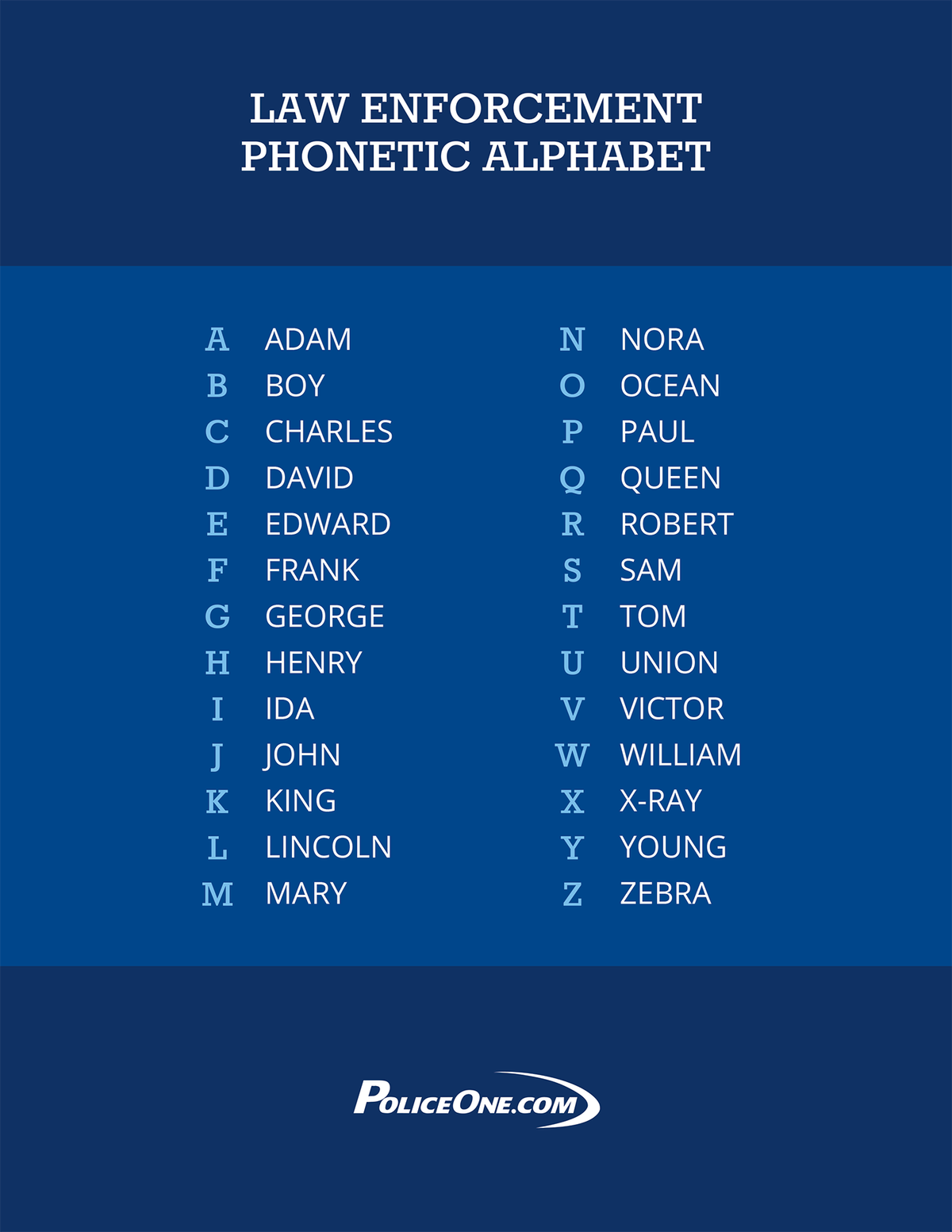

The ITU formally adopted it a few years later making it the established universal phonetic alphabet governing all military, civilian and amateur radio communications. On 21 February 1956, Member States were advised “that the new Phonetic Alphabet is to be made effective in NATO 1 March 1956” (see declassified document from the NATO Archives: SGM-0156-56). Luckily this situation did not last for long as the ICAO approved the alphabet, with November as the code word for the letter N. On 8 April 1955, the North Atlantic Military Committee Standing Group advised that whether or not the proposal was approved by the IACO, the alphabet would “be adopted and made effective for NATO use on 1 January 1956” (see declassified document from the NATO Archives: SGM-0217-55).Īllies hesitated to adopt the alphabet for national use until the ICAO ruled on the proposal thus creating a rather odd situation in which NATO Military Commands would be the sole users of the proposed phonetic alphabet. A review of the Able Baker alphabet, spearheaded by NATO Allies US and UK, was conducted.Ī proposal changing the words for the letters C, M, N, U, and X only was submitted to the International Civil Aviation Organization (IACO) although debate continued over the code word for the letter N (Nectar versus November) (see declassified document from the NATO Archives: SGWM-762-54). It is similar to the one used today.Īlfa, Bravo, Coca, Delta, Echo, Foxtrot, Gold, Hotel, India, Juliett, Kilo, Lima, Metro, Nectar, Oscar, Papa, Quebec, Romeo, Sierra, Tango, Union, Victor, Whiskey, eXtra, Yankee, ZuluĪs militaries and NATO continued to follow the Able Baker phonetic alphabet, it was clear the need for a universal phonetic alphabet still remained. A new version incorporating sounds common to English, French, and Spanish was proposed by the International Air Transport Association (IATA) and came into effect on 1 November 1951 for civil aviation only. Two years later, the British Royal Air Force decided to use the Able Baker alphabet as well.Īble, Baker, Charlie, Dog, Easy, Fox, George, How, Item, Jig, King, Love, Mike, Nan, Oboe, Peter, Queen, Roger, Sugar, Tare, Uncle, Victor, William, X-ray, Yoke, ZebraĪ common criticism of these alphabets was that they were rather English in composition. On the military side, the United States adopted a Joint Army/Navy Phonetic Alphabet, called the Able Baker alphabet after the first two code words, across all of its military branches in 1941. It featured names of cities across the globe.Īmsterdam, Baltimore, Casablanca, Denmark, Edison, Florida, Gallipoli, Havana, Italia, Jerusalem, Kilogramme, Liverpool, Madagascar, New York, Oslo, Paris, Quebec, Roma, Santiago, Tripoli, Uppsala, Valencia, Washington, Xanthippe, Yokohama, Zurich. In the 1920s, the International Telecommunication Union (ITU) produced the first phonetic alphabet to be recognized internationally.

However, it took several adaptations before the version used today came into effect. The FAA requires pilots to understand Morse code and to identify aircraft call signs since NDBs and VORs still send their identifying letters via Morse code.The NATO phonetic alphabet became effective in 1956 and just a few years later became the established universal phonetic alphabet. Although originally used in radio telegraphy, Morse code is still widely used in aviation. Many people have learned this using a song. In other words, this alpha code can be referred as the ICAO/ITU/NATO Phonetic Alphabet or International Phonetic Alphabet.Īnother alpha code is Morse code. Also, some call it ITU (International Telecommunication Union) phonetic alphabet. Other names for this alpha code include International Radiotelephony Spelling Alphabet (IRSA) and the ICAO (International Civil Aviation Organization) phonetic alphabet. The words were chosen to be accessible to French, Spanish, and English speakers. This became the international standard when ICAO and International Telecommunication Union (ITU) accepted it. In 1956, NATO modified the code words used by the International Civil Aviation Organization (ICAO). However, after World War II, various organizations and linguists worked on other challenges of radio communications. British, American, and Australian troops used it successfully. It is the Alpha, Bravo, Charlie alphabet you might have heard of, but maybe not the Thai company employee or the Egyptian medical secretary with just a little understanding of English. They called it the US-UK spelling alphabet. The most widely used spelling alphabet is the NATO phonetic alphabet, which is also used in aviation like in communication between a pilot and the control tower.

military’s Joint Army-Navy alphabet for the three countries. needed to communicate during joint operations. During the Second World War, the armed forces of Australia, the U.S. Radio telephony codes emerged with the evolution of radio communications.


 0 kommentar(er)
0 kommentar(er)
